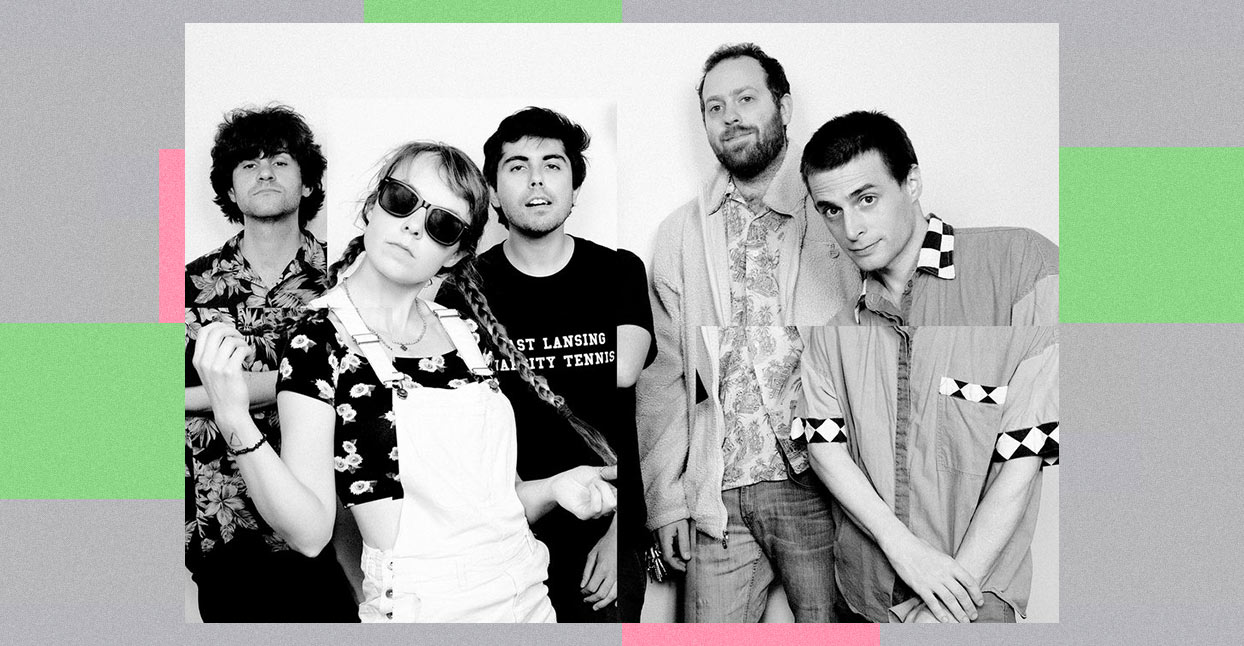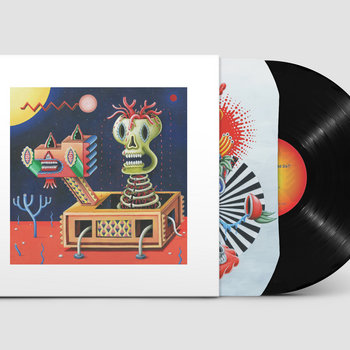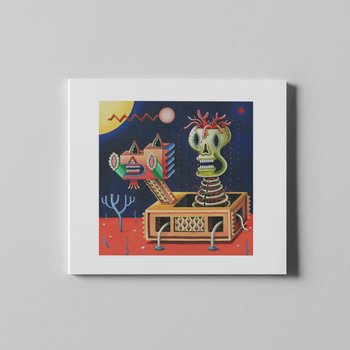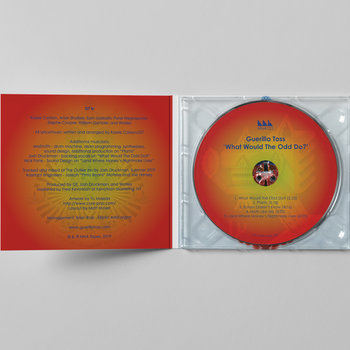
 In September 2017, Kassie Carlson went to the hospital, complaining of flu-like symptoms. She left six weeks later, recovering from open-heart surgery. As it turned out, Carlson’s symptoms were the result of a blood clot caused by opiate addiction.
In September 2017, Kassie Carlson went to the hospital, complaining of flu-like symptoms. She left six weeks later, recovering from open-heart surgery. As it turned out, Carlson’s symptoms were the result of a blood clot caused by opiate addiction.
“I didn’t want to tell anyone,” Carlson says. “It’s embarrassing to have a drug addiction. As a woman, you inherit these roles of being the caretaker and being okay all the time. And being the frontperson of a band, there’s this image of strength, aggression, and power…. When you’re addicted, it’s [seen as] the ultimate weakness.”








Vinyl LP, Compact Disc (CD)




Carlson’s band is the psychedelic noise-pop act Guerilla Toss, and their latest EP, What Would the Odd Do?, chronicles Carlson’s experiences recovering from both surgery and addiction. (A portion of the proceeds will be donated to New York Harm Reduction Educators.) It’s the group’s most accessible—and personal—music to date. Carlson explores every facet of her experience, from re-learning how to walk, to the feelings of existential dread and isolation that can both lead to and exacerbate addiction. She also examines the role of capitalism in the opioid epidemic, which claims tens of thousands of lives annually, as well as the societal tendency to ignore women (“Statistically, women are more likely to hide addiction,” she says).
In the past, Carlson’s lyrics were filled with surreal imagery—things like alien abductions and dreams becoming indistinguishable from the waking world. But on What Would the Odd Do?, she mostly lays metaphorical language aside, in favor of asking open, direct questions: “Talk when everything’s quiet?/ Would you attempt to do it or try it?/ Hearing one voice inside a choir/ What would the odd do?” On “Land Where Money’s Nightmare Lives,” she explores the ways societal power structures silence people in ways that can lead to feelings of powerlessness: “You’re talking, you’re speaking/ but nothing really comes of it/ You hate it, and say it/ but never really do a thing.” On “Plants,” the image of a woman stigmatized for talking to plants is used to depict the ways women with addictions often struggle to be heard: “People say it’s easy to talk to/ Other humans creeping next to you/ But I never seem to get through.”






Vinyl LP, Compact Disc (CD)




Plants were a meaningful reference point for Carlson’s own emotional journey. “Plants [in urban areas] exist among complete chaos at any time,” she says. “When you get clean, you have to deal with all your traumas all at once. There’s no instant shield to block out those types of emotions. Things that happened years ago come rushing back, and you start thinking about them again. You have to learn how to exist and be all over again.”
The music of What Would the Odd Do? similarly swings between two poles, between chaos and contemplation, scaling back Guerilla Toss’ trademark explosiveness while retaining the psychedelic mania. The EP surrounds Carlson’s new conversational singing approach with chipper rushes of video-game-ish sounds, gradually unfurling synths, and overdriven guitars. This balance of Guerilla Toss’ signature bombast with Carlson’s newfound vocal clarity exposes the band’s knack for sticky-sweet melodies, a talent that layers of ear-splitting noise previously obscured.






Vinyl LP, Compact Disc (CD)




The EP’s centerpiece, “Future Doesn’t Know” deftly achieves this equilibrium, allowing plinking synths, militaristic drum work, and squawking power chords to propel Carlson’s voice rather than engulf it. “It’s about asking the future what’s next,” she says, “but really, it’s up to you. It took me deciding I don’t want sickness to be my future [to quit opiates].” When she sings, “Future doesn’t know / What’s coming next,” she doesn’t sound hopeless. Instead, she realizes the only way forward is to start with herself: “Mazes with no start / Leading to nothing / Fading to a pale / Mirror of me.”
“So often, we look to other people for what to do next,” says Carlson, “but in the end, it’s up to you.” By the end of 2017, Carlson had quit opiates for good. “It was awful, but I’m really thankful to be done,” she says of her addiction. “It’s been two years [since I quit], and I feel super powerful, like I’m getting my voice back.” Ultimately, What Would the Odd Do?, serves not only as a document of Carlson’s own recovery, but a beacon for people who might be struggling with the same issues. “You don’t know what’s gonna happen next,” she says, “but you know you’re gonna be alright, no matter what happens.”







